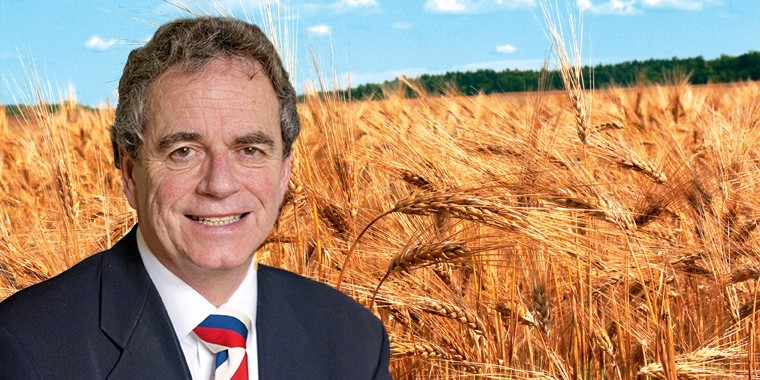While we all agree that the war in Ukraine is very bad for all concerned, if there is any benefit to UK Agriculture – apart from the price inflation enjoyed by lucky old crop long holders – it is that the question of food security has been pushed way up the political agenda.
In the past three months there have been at least six questions and debates in parliament about the security and supply of UK farmed food, whereas there had previously only been about that many debates in the past five years! This should be a bandwagon of opportunity that the main parties should wish to jump on.
We need to remind the Government of our reliance on imports of oilseed rape from Ukraine. We have already imported 238,000 metric tonnes this year; it would have been more but for the war. The supreme irony is that this reliance is self imposed, as the ban on using neonicotinoids caused our oilseed rape acreage to plummet.
Of course, neonicotinoids are freely used in the production of Ukraine oilseed; so where is the logic in that? If Ukraine’s supply to the UK is permanently stopped, where do we get the oilseed from? And what will be the provenance of the seed? We only produce about half of the oilseed rape that we need; so even before this essential supply was cut off, the powers that be needed to “wake up and smell the coffee”. In Germany the Government has already switched 2.5 million acres from “green” schemes back to food production.
Our government has given themselves the luxury of five years to replace the BPS with other schemes, but this process is being overtaken by current events. They are at least 18 months behind the curve, which is the lead time farmers need to plan their forward cropping, so they must accelerate this process now. They cannot ignore the focus that the war has brought upon the need to guarantee UK food production.
The UK grain market follows the Chicago and French futures; mostly up but sometimes down. Some have tried to introduce the weather as a competing bullish factor with the war, but personally I cannot see anything dramatic anywhere in the world which we have not seen before at this time of year.
The “weather stories” usually sort themselves out, but granted we have a long way to go to harvest. Some of our Hampshire and Wiltshire farmers are telling me that their farms are looking as good as they ever have at this time of year; both winter and spring crops.
I forecast some months back that even without the war the UK was on track to run out of wheat and barley before harvest starts. So the first imports of new crop from France will be eagerly awaited. In the case of wheat, that should mean prices staying firm through July and probably up to the first week of August. In theory, the French should have winter barley available in July, so there is more risk in holding feed barley, but the difference between old and new crop has narrowed, with new crop appreciating over the past month.
The war grinds on, but more slowly, as Russia seems content to consolidate what it has gained since 2014 in the east and now the south of Ukraine. With no quick resolution, the rest of the grain trading world has got on to arrange alternative supply chains or more creative ways of continuing to export grain from both Ukraine and Russia.
Ukrainian wheat and maize has been accommodated as “bed and breakfast” to be able to pass through neighboring countries like Romania, Bulgaria and Poland to access Baltic ports. Likewise, shipment by train has continued to the EU. Russia has continued to ship wherever it can. Only Russian-bound ships can operate (because no one else can obtain marine insurance) to those countries where sanctions don’t apply.
We must not forget that both Russia and the Ukraine have to ship a huge portion of their crop in July/August and September/October as they never did have the storage infrastructure and were always short of hard currency. Now Ukraine may have no large surplus this year and might anyway retain what they produce for themselves. Russia is different; they are talking of a wheat surplus of up to 40 million tonnes! They can export it still ok, but the question is over who will buy it?
At present we have record high forward prices for every cereal and oilseed. I don’t want to spoil the bullish fun, but what if Russia decided to dump its potential wheat surplus onto someone who would deal with them, like China? Notwithstanding the latest Covid-19 outbreak, China is still regarded as the big open mouth of demand in the world.
Maybe just to frustrate our Western markets, Russia could agree to take China out of the world wheat market by undercutting the unsanctioned market. If that were to happen – and subject to the rest of us having normal harvests – that could be very detrimental to our forward prices.
So don’t be too greedy; keep selling small amounts into this record forward market and one day you will be right. I remind you of the old Chinese proverb – “He who rides a tiger dare not get off”; because the tiger will eat him! At some point you will have to get off and sell something.




